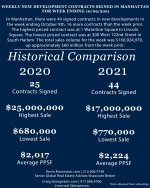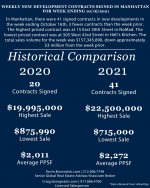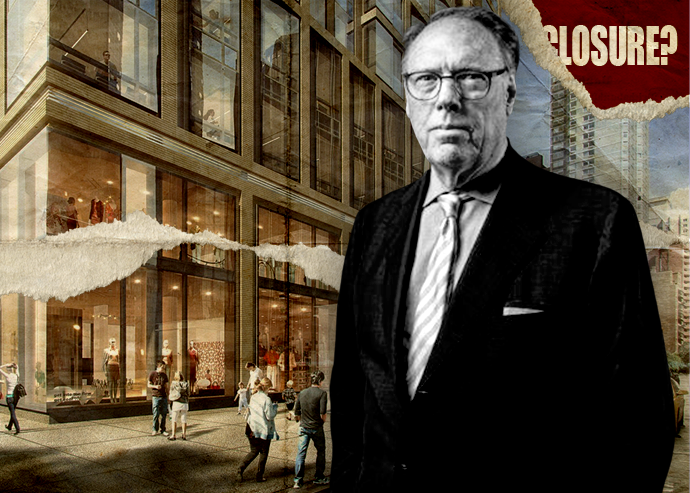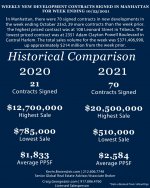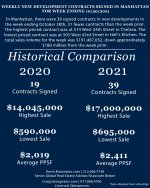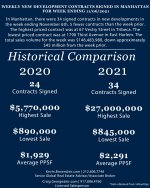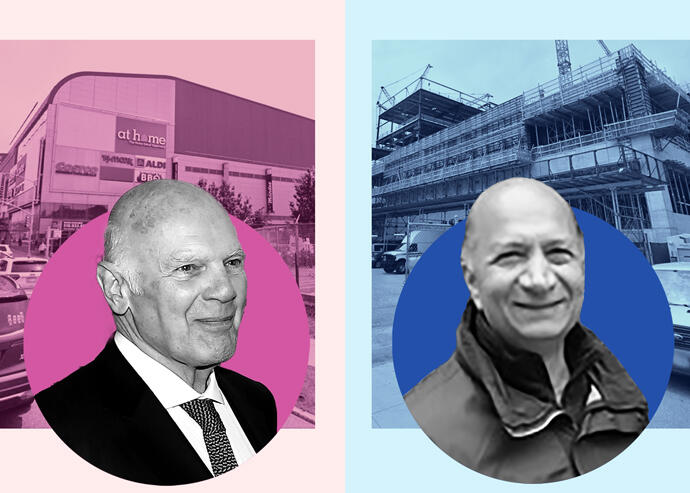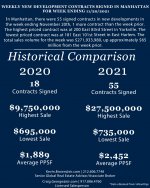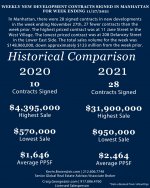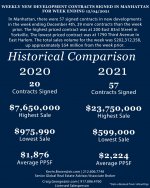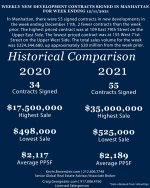September is often the slowest month of the year so some could be attributed to that. Let's see whether or not there is a rebound typical of October.
I'm hearing a non-insignificant amount of buyers talking about the disappearance of discounts and concessions and resisting jumping at higher prices
 New development sales slow in September
New development sales slow in September
The pace of new development contracts slowed down in September by 2021’s record standards, but volume remained elevated compared to the previous two years, according to a monthly analysis of new development sales contracts by Marketproof, a real estate analytics company .
There were 337 contracts signed for new development condos in the city last month, down 22 percent from August’s total of 421. Despite the slowdown, September’s activity is still up 30 percent compared to the same time last year and up 29 percent from September 2019.
“We had three months in the summer that were truly remarkable,” said Kael Goodman, CEO of Marketproof. “These are still very elevated numbers [we’re] just not at the peak anymore.”
Goodman said new development sales are not influenced as strongly by seasonal trends and “there’s no reason to think that anything is really going to change.” He said he expects strong sales compared to past years to continue.
As is typical, most of last month’s contracts were signed in Manhattan and Brooklyn. Manhattan had 174 deals, followed by Brooklyn’s 120. Queens had 43 contracts.
The best-selling projects were 160 Imlay in Red Hook with 11 signed contracts last month, Long Island City’s Skyline Tower with 10 contracts and 300 West in Harlem, where 8 deals were inked.
I'm hearing a non-insignificant amount of buyers talking about the disappearance of discounts and concessions and resisting jumping at higher prices

New Condo Sales Slow in September 2021
New development condo sales slow in September but buyer activity is still elevated compared to the same months in 2020 and 2019.
therealdeal.com
Last month saw 337 contracts signed in NYC, down from August’s 421
The spring and summer frenzy at new developments may have disappeared with scorching temperatures, but buyers are still on the prowl.The pace of new development contracts slowed down in September by 2021’s record standards, but volume remained elevated compared to the previous two years, according to a monthly analysis of new development sales contracts by Marketproof, a real estate analytics company .
There were 337 contracts signed for new development condos in the city last month, down 22 percent from August’s total of 421. Despite the slowdown, September’s activity is still up 30 percent compared to the same time last year and up 29 percent from September 2019.
“We had three months in the summer that were truly remarkable,” said Kael Goodman, CEO of Marketproof. “These are still very elevated numbers [we’re] just not at the peak anymore.”
Goodman said new development sales are not influenced as strongly by seasonal trends and “there’s no reason to think that anything is really going to change.” He said he expects strong sales compared to past years to continue.
As is typical, most of last month’s contracts were signed in Manhattan and Brooklyn. Manhattan had 174 deals, followed by Brooklyn’s 120. Queens had 43 contracts.
The best-selling projects were 160 Imlay in Red Hook with 11 signed contracts last month, Long Island City’s Skyline Tower with 10 contracts and 300 West in Harlem, where 8 deals were inked.
